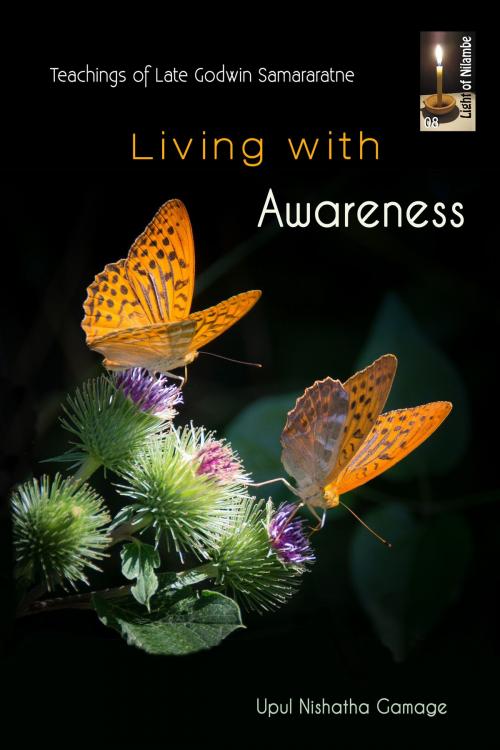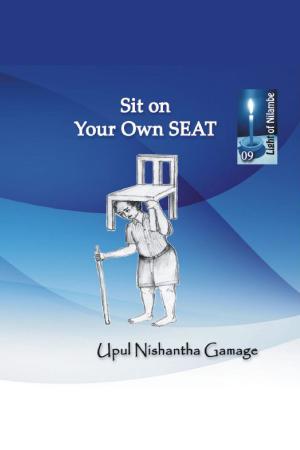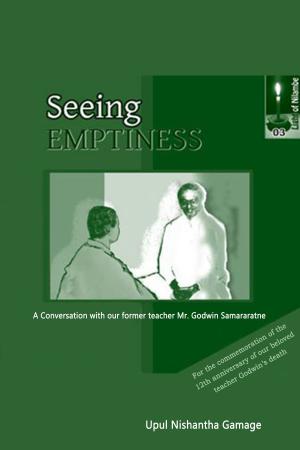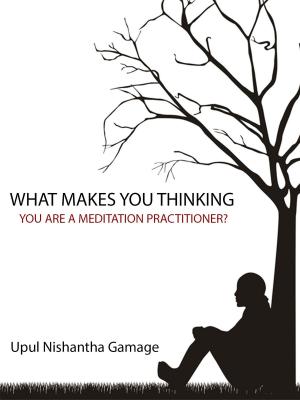Living with Awareness: Teachings of late Godwin Samararatne
Nonfiction, Religion & Spirituality, Inspiration & Meditation, Meditations| Author: | Upul Nishantha Gamage | ISBN: | 9781370241668 |
| Publisher: | Upul Nishantha Gamage | Publication: | July 2, 2017 |
| Imprint: | Smashwords Edition | Language: | English |
| Author: | Upul Nishantha Gamage |
| ISBN: | 9781370241668 |
| Publisher: | Upul Nishantha Gamage |
| Publication: | July 2, 2017 |
| Imprint: | Smashwords Edition |
| Language: | English |
What we are trying to do is to develop insight, to develop skills, not to have only pleasant and calm experiences. So these are the insights I have in mind, because when you are here, if you develop these insights, if you develop these tools, then when unpleasant emotions arise in everyday life you will know how to deal with them. An important insight based on the Buddha's teaching is to realise that these things are impermanent. Whatever arises passes away. I hope you'll also develop that insight. So please don't try to get rid of them through your will, by controlling, but when they are there just let them be there and let them go away; let the impermanence operate naturally. Another insight is to realise that they don't belong to you because they are visitors. So visitors come and go. It means that they don't belong to you.
Try to make your own discoveries. Are the thoughts mostly about the past? Are they mostly about the future? Are the thoughts racing one after another? Are they slowing down? Is there a space between two thoughts? Do you get involved in some thoughts? Do you judge your thoughts? Make your own discoveries about the different aspects, about the different dimensions, about the structure of your thoughts. Have moment to moment awareness of the way you are relating to each thought that arises.
What we are trying to do is to develop insight, to develop skills, not to have only pleasant and calm experiences. So these are the insights I have in mind, because when you are here, if you develop these insights, if you develop these tools, then when unpleasant emotions arise in everyday life you will know how to deal with them. An important insight based on the Buddha's teaching is to realise that these things are impermanent. Whatever arises passes away. I hope you'll also develop that insight. So please don't try to get rid of them through your will, by controlling, but when they are there just let them be there and let them go away; let the impermanence operate naturally. Another insight is to realise that they don't belong to you because they are visitors. So visitors come and go. It means that they don't belong to you.
Try to make your own discoveries. Are the thoughts mostly about the past? Are they mostly about the future? Are the thoughts racing one after another? Are they slowing down? Is there a space between two thoughts? Do you get involved in some thoughts? Do you judge your thoughts? Make your own discoveries about the different aspects, about the different dimensions, about the structure of your thoughts. Have moment to moment awareness of the way you are relating to each thought that arises.















